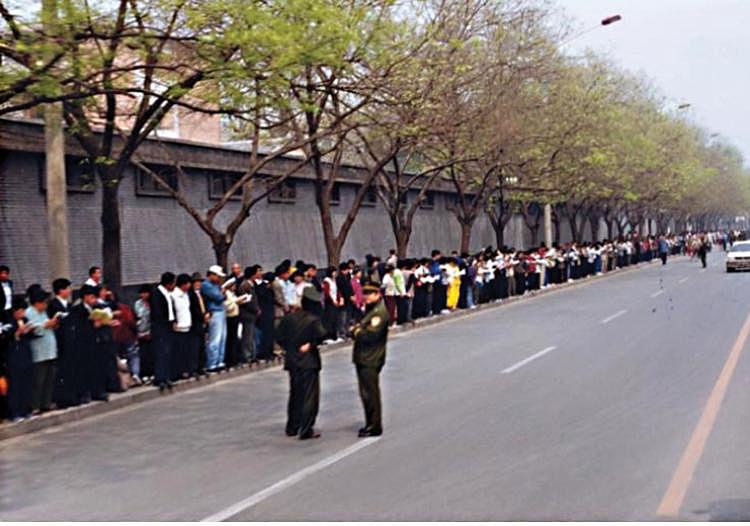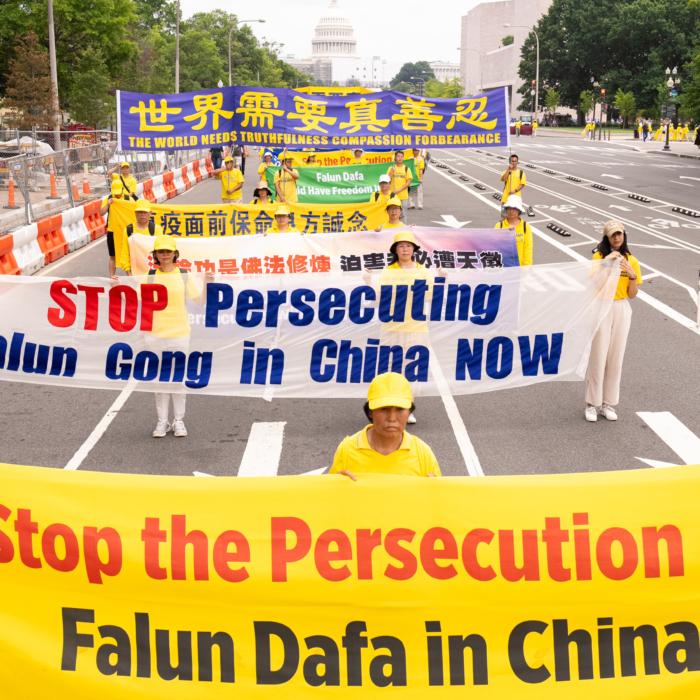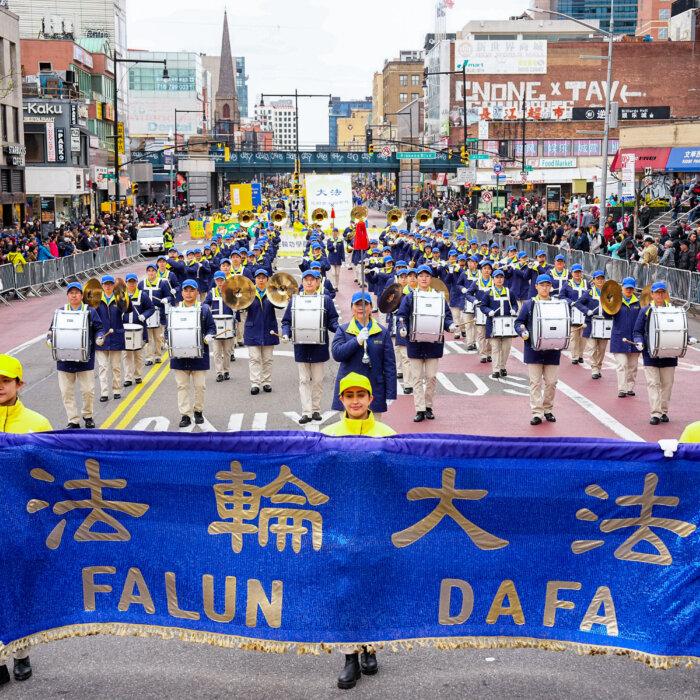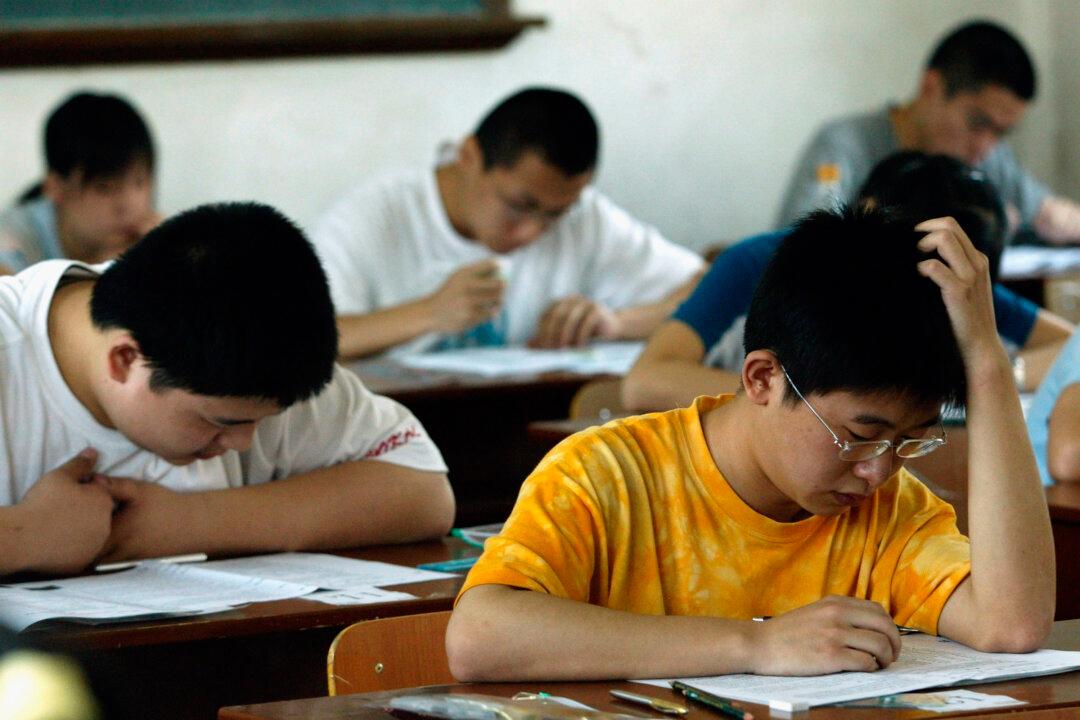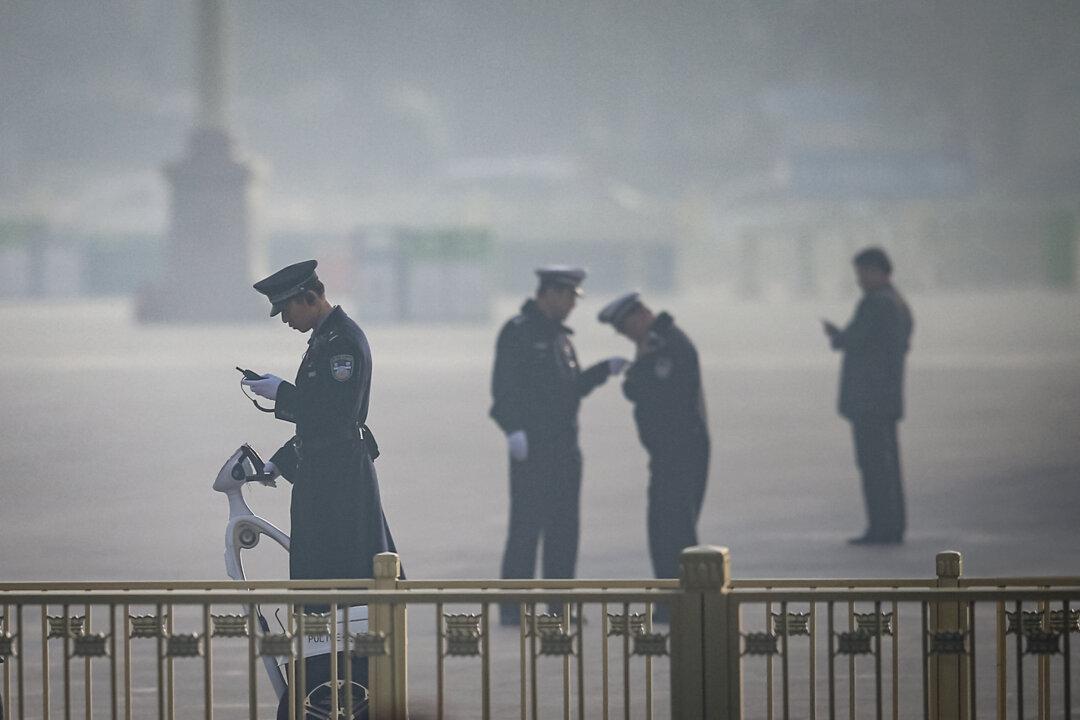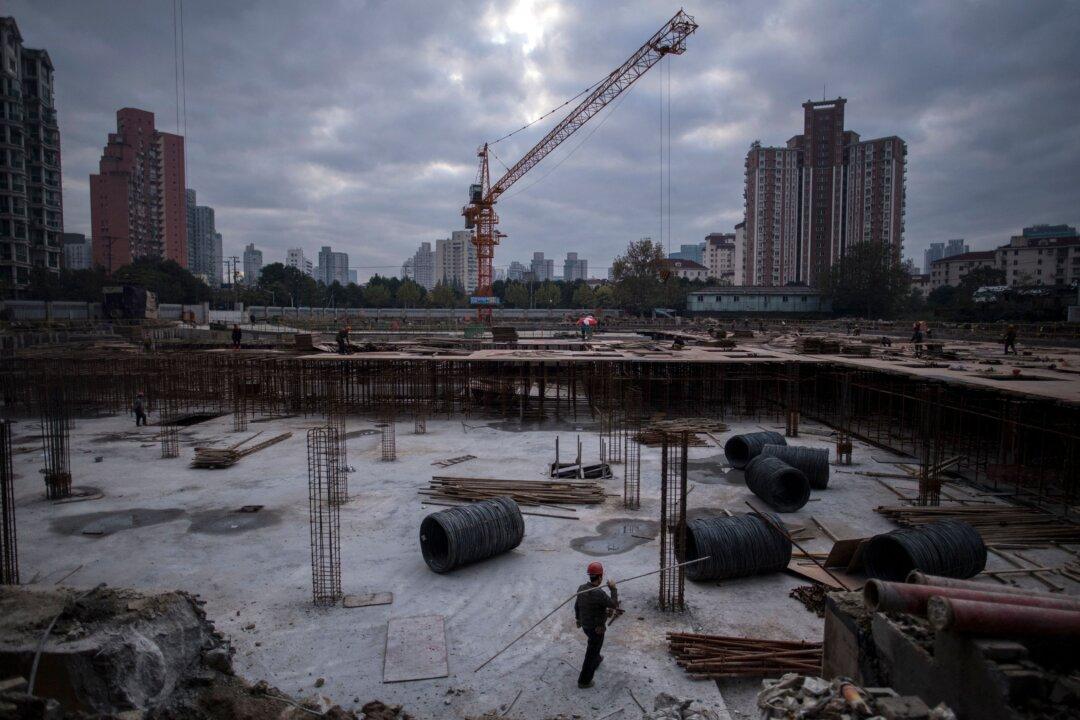Twenty-five years ago, in a silent yet profound display of resilience, tens of thousands of Chinese citizens stood outside Zhongnanhai, the central office of Chinese leadership. They stood wholeheartedly for an entire day, determined to speak the truth. Against the backdrop of decades of brutal persecution, this unwavering stance begs the question: What kind of faith can imbue such enduring resilience?
Annually, on April 25, Falun Gong practitioners worldwide commemorate this day with various events, highlighting their long-standing plight. Last week in Flushing, New York, several thousand practitioners held a parade, echoing similar gatherings across the globe.
These observances bring us back to a pivotal moment in 1999 when tens of thousands of Falun Gong practitioners took their appeals to Beijing peacefully. However, the act of mass appeal, although absolutely peaceful, sparked fear within the Chinese Communist Party (CCP), leading to a brutal campaign ordered by former Chinese leader Jiang Zemin. Why, then, do we look back at this act and its subsequent repression as a significant chapter for the Chinese people?
Li Jun, an independent producer, said on the “Pinnacle View” program that the “April 25 Peaceful Appeal” symbolized a final attempt to halt the ongoing repression against Falun Gong. Prior to this, intentions to suppress the movement were already simmering, traceable to as early as 1996, with incidents spearheaded by state-owned publications like Guangming Daily.
Despite the internal labels and attempted clampdowns, Falun Gong’s extensive following, which included notable figures such as Chen Huanyou, former Governor and Party Secretary of Jiangsu Province, showcased the spiritual practice’s broad public endorsement and the difficulty of its suppression.
Indeed, the groundswell of support for Falun Gong, evident in the numerous practitioners and the public acknowledgment of its benefits, underscored the challenge the CCP faced. Despite this, by early 1999, warnings of impending suppression were clear. The April 25 incident, therefore, was not just a plea for relief but a strategic effort to avert an impending crisis.
The Unplanned Unity of ‘April 25’
Li Muyang, a media personality, vividly recounted his participation in the unprecedented April 25 Appeal on “Pinnacle View.” The day started with a spontaneous decision; upon learning that dozens of Falun Gong practitioners in Tianjin had been assaulted and arbitrarily detained by the police, Mr. Li and his wife chose to travel to Beijing, driven by a compelling need to convey the truth to the authorities, hopeful for rectification of governmental missteps.Upon arriving in Beijing, Mr. Li was struck by two unexpected realities. First, the number of participants in the peaceful appeal far surpassed the official estimates the CCP gave, which claimed 10,000 attendees. Conversations among the crowd suggested numbers escalating to as high as 130,000—a stark contrast to the CCP’s figures, highlighting a significant underestimation of the movement’s scale.
The second astonishing aspect was the high level of discipline and order among such a vast group. Contrary to typical protest scenes, there were no chants or tumult; participants stood silently by the road, manifesting an exemplary calm as they awaited their turn to speak with the State Council’s petition department.
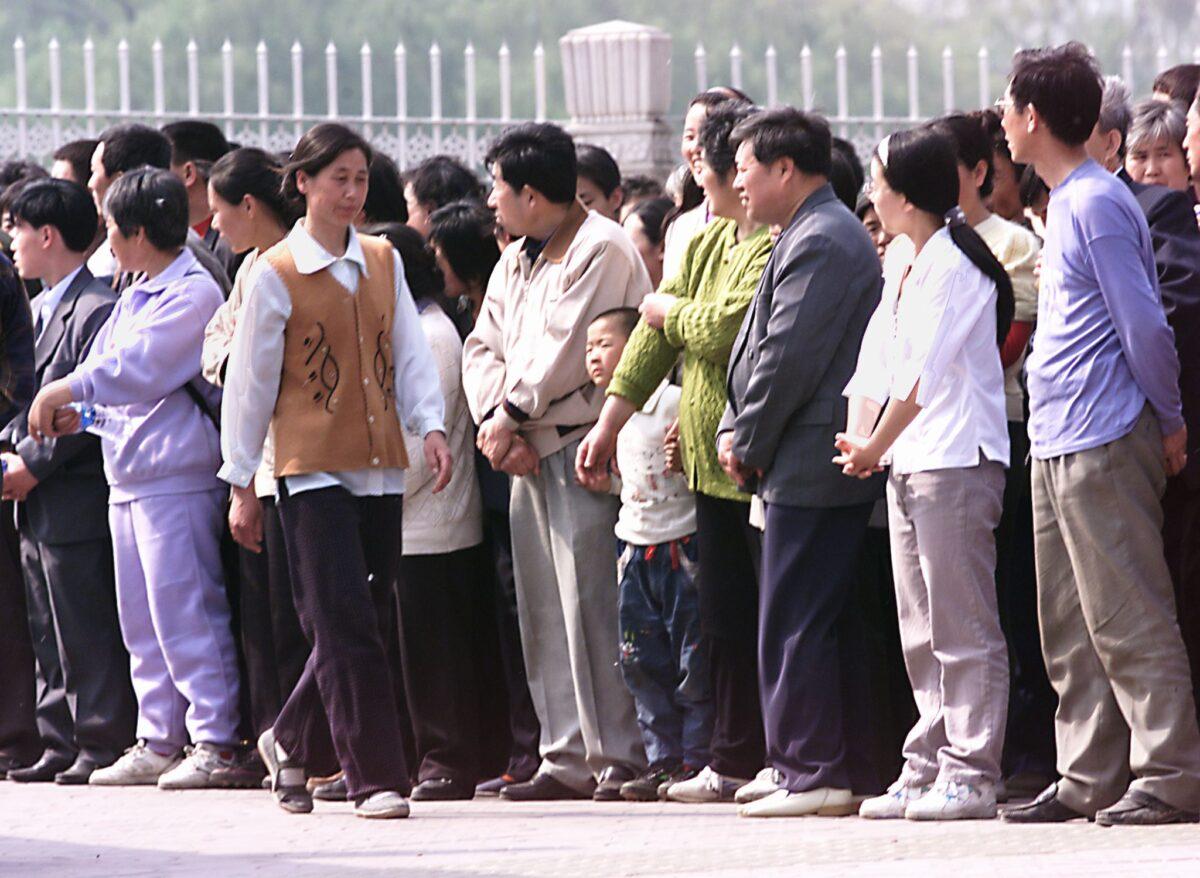
“I was not too far from Fuyou Street, and I stood there from about 10:30 a.m. until about 10:00 p.m. During all this time, I did not go to the bathroom, drink any water, or eat anything. Those around me, except for the very elderly who might occasionally rest, everyone else, whether they were in their 20s, 30s, or even 40s and 50s, just stood there quietly,” Mr. Li described.
“There was never any organized instruction on what to do or how to act. To reduce strain on local facilities, we didn’t eat, drink, or move around.”
Those actions were a personal sacrifice shared by many to minimize disruption in the city.
This natural discipline was mirrored because many, including Mr. Li himself, were unaware of the appeal until the last moment, relying solely on happenstance and word-of-mouth to participate.
“The CCP claims that there were 70 million to 100 million Falun Gong practitioners nationwide. Imagine how many were in Beijing at the time. Yet many in the Beijing area were unaware of the peaceful appeal, only heard about it afterward,” Mr. Li explained, emphasizing the lack of formal organization and prearranged instructions.
Beijing’s Smear and Setup
During his appearance on the show, Mr. Li delved into Beijing’s narrative surrounding the events of April 25, 1999, addressing the common misconception of an “encirclement” of Zhongnanhai. He clarified that Falun Gong practitioners had originally gathered on Fuyou Street, a location synonymous with lawful appeals near the CCP’s Central Office. However, some participants recall being redirected towards the entrance of Zhongnanhai by local public security and police forces, which he calls an orchestration by authorities.“On April 23, [1999], I was in Tianjin. The April 25 Beijing appeal was triggered by an event in Tianjin where 45 Falun Gong practitioners were arbitrarily arrested. On the evening of April 23, as it was getting dark around six or seven o’clock, many Tianjin public security forces stormed into Tianjin University. At that time, about a thousand Falun Gong practitioners were quietly waiting in the sports field, intending to clarify to the school the falsehoods of an article slandering Falun Gong published in their magazine. However, the Tianjin public security cleared the area forcefully; they really started hitting people. The practitioners had never experienced such treatment before, and it became untenable to stay within the school, so they began to leave,” Mr. Li recounted.
“But when we reached the main entrance, I was near the front and noticed that the right side of the road ahead had been completely blocked by Tianjin public security and police vehicles. We could only go left, and the public security had marked a path on the left with warning tape, isolating a pedestrian path where, at most, two people could walk side by side, and you could only walk through there. We didn’t know the purpose of this design; maybe they wanted to make people leave quickly. But we noticed that at every intersection, they left a passage just wide enough for one or two people; all other routes were blocked, and you could only move forward along this path with no possibility of escaping.
“We continued this way until we reached the Tianjin Municipal Government, from Hami Road to Tai’an Road, which is a very long distance. We never intended to go to the Tianjin Municipal Government; what were we supposed to do there? When we arrived at a square in front of the Tianjin Municipal Government, many of the Tianjin public security had linked arms to form a human wall, blocking the entrance to the government building. It seemed like they were creating the false impression that we were there to storm the building,” Mr. Li vividly recalled.
This orchestrated redirection, both in Tianjin and later in Beijing, appears to have been a calculated move by the CCP to frame the practitioners’ actions as confrontational or subversive. The deliberate channeling of the crowd to high-profile governmental locales suggests a premeditated attempt to justify the forthcoming harsh clampdowns by painting a narrative of necessity and defense against an organized threat, according to Mr. Li.
Reflecting on these incidents, Mr. Li posited that the suppression of Falun Gong would have proceeded regardless of the “April 25 Appeal” in Beijing. The substantial number of practitioners nationwide was seen as a significant challenge to the CCP, setting the stage for inevitable conflict.
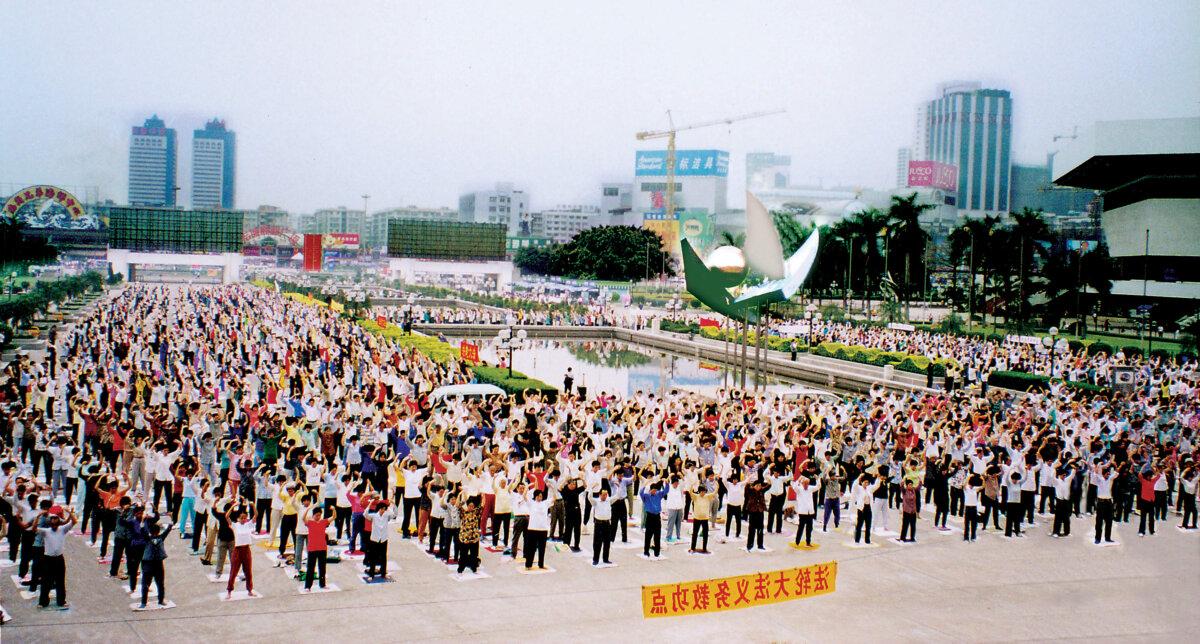
The Enduring Legacy of ‘April 25’: A Testament to Peaceful Assertion of Rights
The events of “April 25” have etched a significant mark in the annals of modern Chinese history, showcasing the extraordinary actions of Falun Gong practitioners. On that day, practitioners departed from the unspoken political norms dictated by the CCP, choosing instead to present their grievances in an equal and lawful manner.This approach underscored their commitment to truthfulness and embodied a spirit of tolerance and compassion, offering the CCP an opportunity for introspection and rectification.
The cultural and historical backdrop of China, marred by the traumas of the Cultural Revolution and other violent suppressions, casts a stark light on the courage displayed by Falun Gong practitioners. Their decision to stand up and voice their concerns, fully aware of the potential for severe consequences, is a profound act of forbearance. This bravery is particularly notable given the practitioners’ understanding of the CCP’s historical response to dissent.
“The ‘April 25 Peaceful Appeal’ may seem like a simple act, but a deeper understanding of the CCP’s malevolence and the social context in China at the time reveals that the collective appeal by Falun Gong practitioners on April 25 affirms that it is a spiritual practice group without any political goals. To use a common saying, there are no political groups that are so foolish,” said Ms. Guo Jun, the Editor-in-Chief of The Epoch Times’ Hong Kong edition.
“They sought only the freedom to practice their faith without interference, as stipulated in the constitution.” This stance, far from political maneuvering, was a dignified assertion of their God-given rights, according to Ms. Guo.
“The practice teaches us adherents to cultivate themselves, to be good people, better people, and ultimately to transcend worldly concerns. We do not see people as enemies; we merely speak the truth. Whether people choose to believe the truth is their own fate. I believe this is the fundamental spirit demonstrated by Falun Gong practitioners during the ‘April 25 Appeal,’” Ms. Guo said.
“Therefore, the past 25 years of resistance against Beijing’s persecution and the actions of April 25, 1999, stand as a beacon of peaceful, rational resistance against persecution—a movement that champions the intrinsic right to spiritual practice.”
